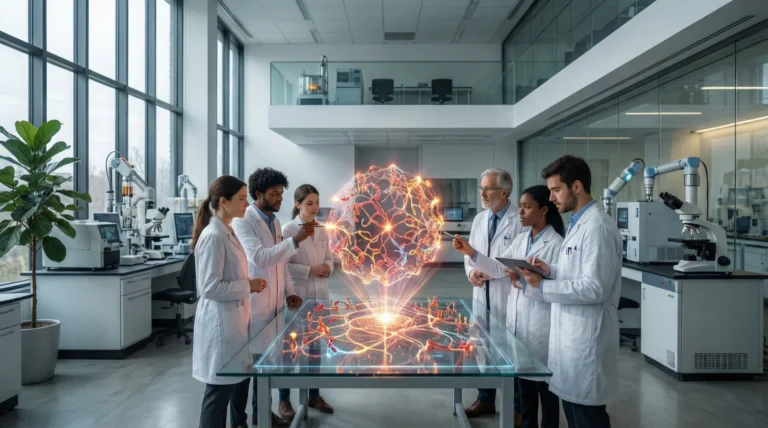
Research findings published today in the peer-reviewed Journal of Clinical Oncology by NMDP℠ and CIBMTR® (Center for International Blood and Marrow Transplant Research®) indicate that there is no significant difference in overall survival (OS) for patients with blood cancer undergoing blood stem cell transplants from unrelated donors matched at 7/8 human leukocyte antigen (HLA) markers compared to those from fully matched 8/8 unrelated donors, when utilizing a post-transplant cyclophosphamide-based (PTCy) strategy to prevent graft-versus-host disease (GVHD). The study, conducted by CIBMTR in collaboration with the Medical College of Wisconsin® and NMDP, examined outcomes from 10,025 adult patients across 153 U.S. transplant centers who received initial unrelated donor blood stem cell transplants between 2017 and 2021.
Key findings highlighted that patients who underwent a 7/8 HLA-matched unrelated donor transplant with PTCy had comparable OS (hazard ratio [HR] 0.96; 95% CI 0.823-1.11; P = .60) and GVHD-free, relapse-free survival (GRFS) (HR 0.90; 95% CI 0.79-1.02; P = .1) compared to those receiving an 8/8 matched donor transplant with PTCy. Traditionally, calcineurin inhibitor-based methods to prevent GVHD have shown poorer outcomes with mismatched donors; however, in this study, OS was improved after 8/8 PTCy transplant (HR 0.88; 95% CI 0.80-0.96; P = .004) and was similar with 7/8 PTCy transplant (HR 0.92; 95% CI 0.80-1.05; P = .2062). Similarly, GRFS was improved following 8/8 (HR 0.61; 95% CI 0.57-0.66; P < .0001) or 7/8 PTCy transplant (HR 0.68; 95% CI 0.60-0.76; P < .0001).
The adoption of the PTCy approach was shown to eliminate disparities in survival, significantly reduce GVHD risk, and broaden access to safe and effective transplant options for patients lacking a fully matched unrelated donor, a circumstance particularly affecting racially and ethnically diverse populations.
Dr. Brian Shaffer, co-first author and bone marrow transplant specialist at Memorial Sloan Kettering Cancer Center, emphasized the study’s implications: “These findings confirm our leadership in evolving transplant practices. As global demographics diversify, patients with blood cancer increasingly seek safe, effective therapies to enhance their longevity and survival.”
In the United States, patients from Asian/Pacific Islander backgrounds currently have a 47% chance of finding an 8/8 matched unrelated donor through the NMDP Registry℠, which rises to 92% when considering a 7/8 match or greater. Similarly, African American and Black patients see their odds increase from 29% with an 8/8 match to 84% with a 7/8 match. Patients with Latino/Hispanic or non-Hispanic White ancestry also benefit, with their chances rising from 48% (8/8) to 90% (7/8) and 79% (8/8) to 99% (7/8), respectively.
Dr. Steven Devine, Chief Medical Officer of NMDP and Senior Scientific Director of CIBMTR, underscored the broader impact: “This novel approach reshapes perspectives for physicians, researchers, patients, and families, redefining what constitutes a ‘suitable donor.’ Achieving these significantly improved outcomes not only extends patients’ lives but also removes barriers to transplantation for all patients, irrespective of their ancestry.”
These findings form part of NMDP’s ongoing commitment to advancing cell therapy accessibility and bridging the donor availability gap. NMDP’s network of transplant centers, many involved in CIBMTR trials, collaborates to challenge established norms in blood stem cell transplantation research. NMDP’s “Donor for All” initiative, including this study, aims to establish safe and effective approaches for utilizing mismatched unrelated donor transplants in the U.S. and globally.
Operational data from NMDP-facilitated transplants highlight a 60% year-over-year increase in mismatched unrelated donor transplants, predominantly from donors matched at 7/8 HLA markers, underscoring efforts within the U.S. medical community to explore safe, evidence-based methods enhancing patients’ survival and well-being.
“This scientific evidence underscores our response to an unmet need,” Dr. Devine concluded.
CIBMTR presented these findings at the American Society for Transplantation and Cellular Therapy’s Tandem 2024 scientific congress in February 2024, further validating their impact on transplant medicine.




